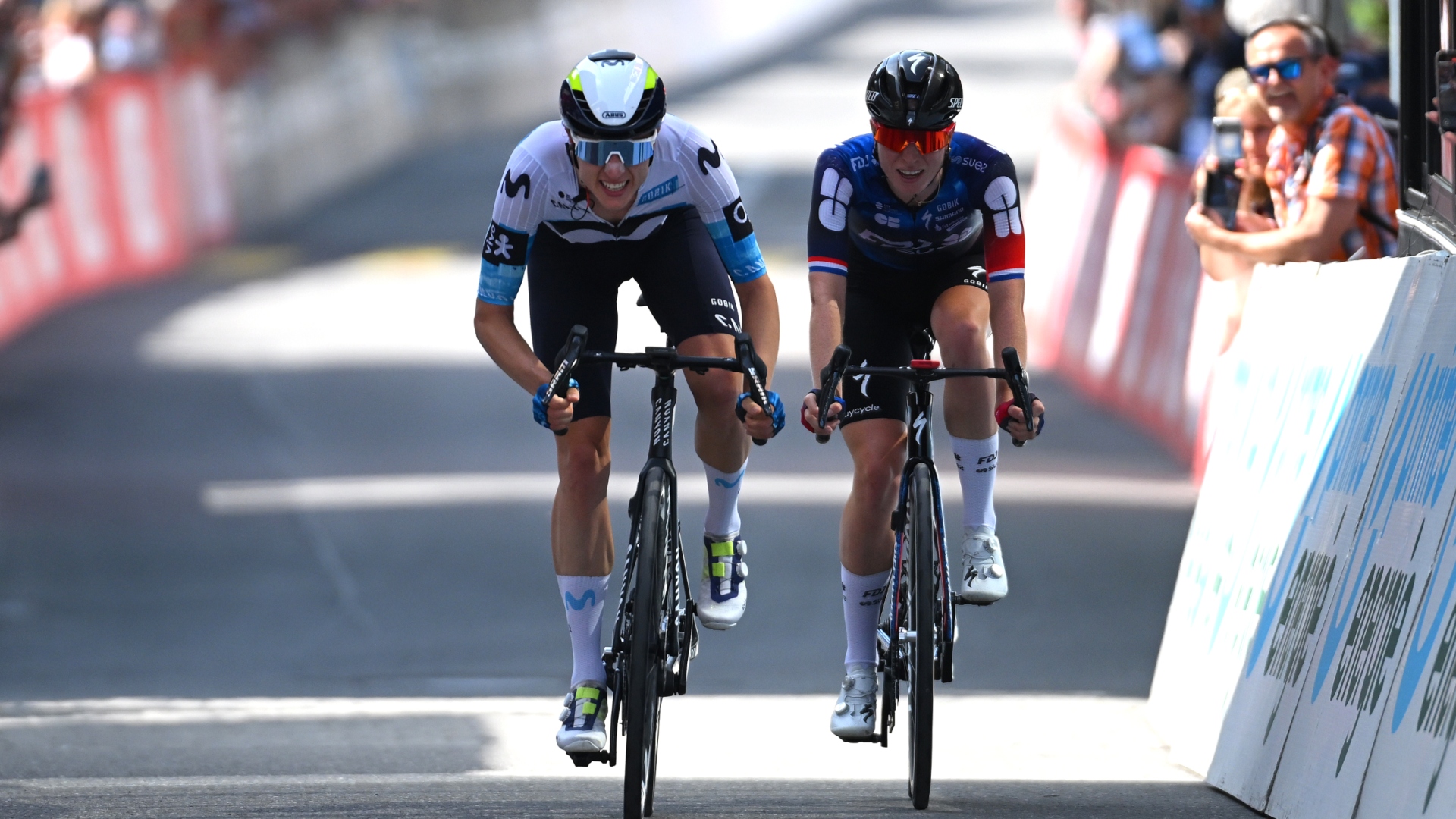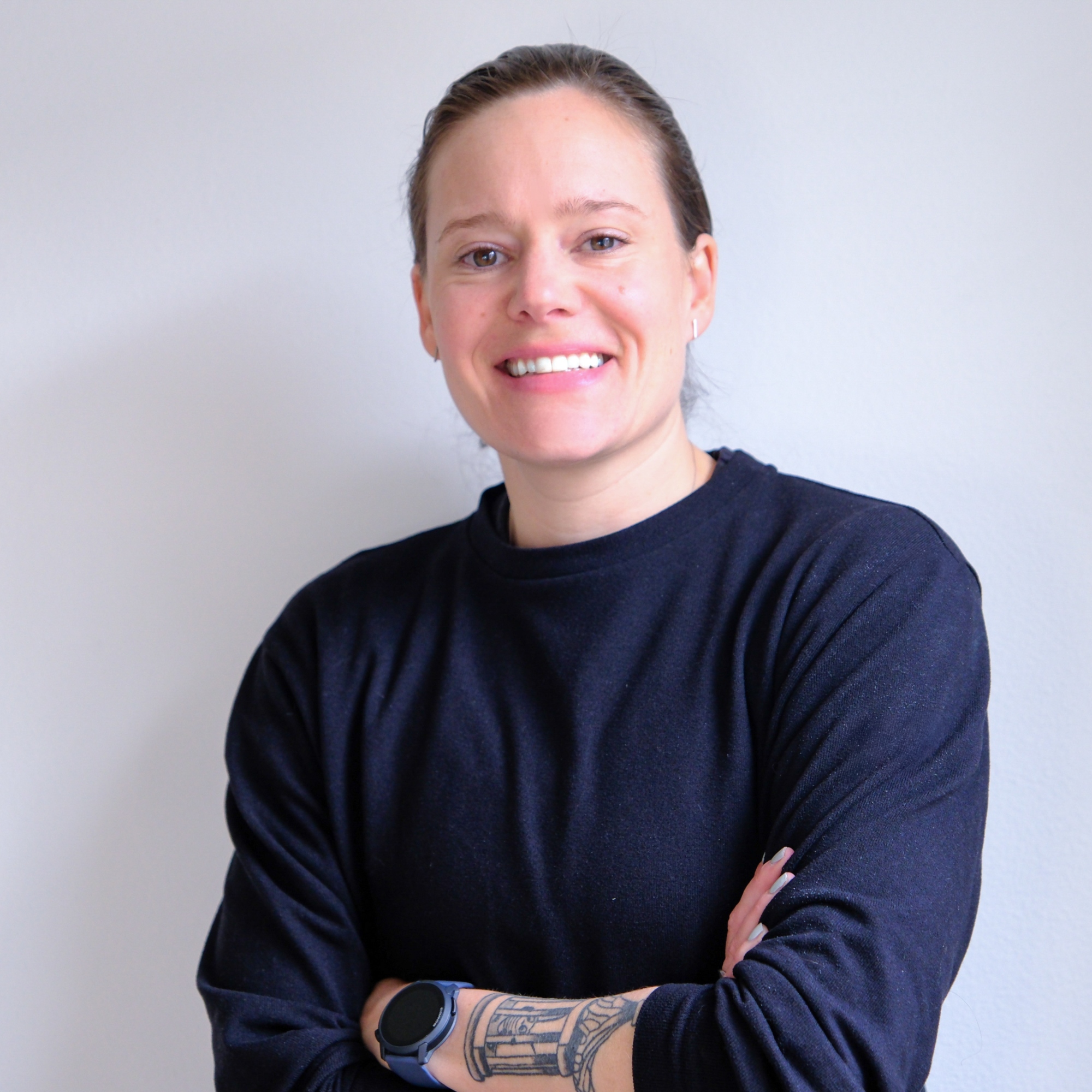'Ferrand-Prévot’s weight loss for the Tour puts pressure on all of us,' says Marlen Reusser
Doctor and competitor Marlen Reusser says Ferrand-Prévot’s weight loss sets a worrying standard for the peloton


The latest race content, interviews, features, reviews and expert buying guides, direct to your inbox!
You are now subscribed
Your newsletter sign-up was successful
Ten days after the Tour de France Femmes avec Zwift concluded, the weight debate shows no sign of fading. Winner Pauline Ferrand-Prévot (visma - Lease a Bike) shed a reported 4kg in preparation for the punishing climbs, a decision that has dominated conversations in the peloton and beyond.
As she makes her celebratory tour to sponsors and media outlets across France, fellow riders are sounding the alarm, using social media and interviews to question the broader implications of her much-discussed weight loss.
“Ferrand-Prévot has set a new standard. When riders are so successful with this, it puts pressure on all of us,” Swiss cyclist Marlen Reusser tells Tages-Anzeiger.
Reusser had been a favourite for this year's Tour but ended up watching the race unfold from home while recovering from food poisoning.
She says she found herself both impressed and concerned by Ferrand-Prévot’s approach, and even wondered if she would need to lose weight for future editions.
In cycling, power-to-weight ratio is an inescapable metric. In the fight against gravity, every extra kilogram costs precious watts. Riders strive to optimise their bodies and equipment alike for the demands of the terrain. Over the decades, that focus has driven many athletes, men and women alike, into disordered eating, and the sport continues to struggle a balance between health and performance.
Reusser comes at this from a unique perspective. She's both a fierce competitor and a physician. She recognises that Ferrand-Prévot's weight loss was part of a calculated and supervised strategy tailored specifically to the Tour, and that the Française now plans to return to her normal weight.
The latest race content, interviews, features, reviews and expert buying guides, direct to your inbox!
But what does this do to the body, Reusser ponders. "Is it perhaps not so harmful if the deficiency is not a permanent condition?” she asks. “To what extent is it optimisation, and when does it become pathological?”
She notes that research in this area is limited. Most women in the pro peloton already fall below the standard body fat percentages but that being below the norm doesn’t necessarily mean harmful levels. However, Reusser like many of her peers, is quick to point out the that long-term undernutrition has serious consequences for women.
She references RED-S (Relative Energy Deficiency in Sport), a prevalent condition that arises when athletes don’t consume enough calories to meet the demands of training and daily life. The resulting energy deficit can disrupt multiple bodily systems, affecting reproductive and bone health, metabolism and mental well-being.
Reusser worries that Ferrand-Prévot’s approach to race optimisation may have gone too far, sending the wrong message to young riders entering the sport, especially those that do not have access to a nutritionist and professional supervision. Critique is warranted, she says.
“My young teammate asked me: ‘Did you see? Ferrand-Prévot measures her body fat and then decides whether she’s allowed to have breakfast’,” she says, fearing that years of educational work around malnutrition and anorexia are at risk of being undone.
In the past, Reusser campaigned for a body fat limit to be adopted by cycling's governing bodies but it went nowhere.
When it comes to herself and her future Grand Tour aspirations, Reusser says she intends to stay true to herself, and maintain the balance of health and on-the-bike success.
Reusser is only the latest in a slew of female professional cyclists to come forward.
Dutch rider Demi Vollering (FDJ-Suez), this year's runner-up in the Tour, pushed back hard against the weight-centric narrative: "The biggest priority is to be healthy...I can show girls that you don't have to be super, super skinny, and that you can just believe that if you have the power and that you train hard, that you can make it," she stated. "I make, and will continue to make, every decision in my career by putting my health first."
French pro Cédrine Kerbaol (EF Education), who has a background in nutrition, also warned that cycling is in a “dangerous moment,” noting that decreasing weight in the name of performance can damage menstrual health and bone density.
Leaning out in preparation of a race is a common practice in a variety of elite sports for both men and women athletes, yet Ferrand-Prévot’s weight loss has drawn disproportionate scrutiny. But many, like Reusser, argue the discrepancy is necessary.
American Kristen Faulkner (EF Education), for example, has spoken candidly about female health concerns in racing, highlighting that underfueling affects women differently than the male peloton. “If a man doesn’t fuel properly, he bonks, but if a woman doesn’t fuel properly, she could lose her period.”
The ongoing debate has prompted the women’s riders’ union, The Cyclists’ Alliance (TCA), to call for mandatory yearly RED-S and bone mineral screenings to safeguard athlete health. The organisation also plans to launch a campaign of education and awareness for health and wellbeing.
"The current system is not set up to protect female health, so I believe it’s our duty to continue educating and advocating for better standards that allow women to perform with well-fuelled, strong, and happy bodies," TCA president Grace Brown said in a statement this week.

Cycling Weekly's North American Editor, Anne-Marije Rook is old school. She holds a degree in journalism and started out as a newspaper reporter — in print! She can even be seen bringing a pen and notepad to the press conference.
Originally from the Netherlands, she grew up a bike commuter and didn't find bike racing until her early twenties when living in Seattle, Washington. Strengthened by the many miles spent darting around Seattle's hilly streets on a steel single speed, Rook's progression in the sport was a quick one. As she competed at the elite level, her journalism career followed, and soon, she became a full-time cycling journalist. She's now been a journalist for two decades, including 12 years in cycling.
You must confirm your public display name before commenting
Please logout and then login again, you will then be prompted to enter your display name.